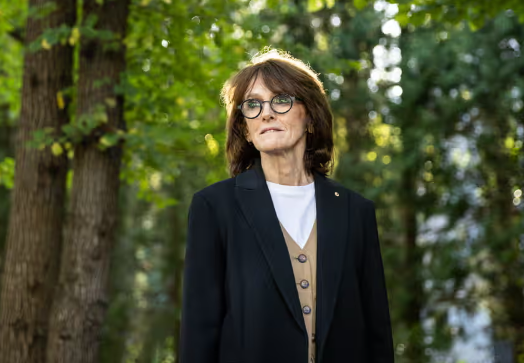
Australia’s Chief Scientist Takes on the Journal Publishers Gatekeeping Knowledge
Australia’s Chief Scientist Takes on the Journal Publishers Gatekeeping Knowledge https://opusproject.eu/wp-content/uploads/2024/03/4123151.png 524 363 Open and Universal Science (OPUS) Project Open and Universal Science (OPUS) Project https://opusproject.eu/wp-content/uploads/2024/03/4123151.pngIn an era where information is touted as the ultimate commodity, access to scientific research remains a battleground. Dr. Cathy Foley, Australia’s chief scientist, has embarked on a mission to dismantle the fortress of journal publishers, advocating for a world-first open access model that promises to democratize knowledge like never before.
Imagine a world where every Australian, regardless of their affiliations or financial status, has access to the latest research papers for free. It’s a vision that challenges the status quo, where valuable insights are often locked behind expensive paywalls, leaving many in the dark.
Dr. Averil Cook, a clinical psychologist, aptly compares the current state of scientific research to the Latin mass of the past, where only fragments of knowledge are accessible to the public. As professionals strive to stay abreast of advancements in their fields, they often find themselves constrained by exorbitant subscription fees and limited access.
But the tide is turning. Dr. Foley’s open access model aims to dismantle the monopolistic grip of journal publishers, offering a centralized digital library accessible to all Australians. With a MyGov account or involvement in education, individuals would have unrestricted access to a wealth of research papers, transcending the barriers imposed by traditional publishing models.
The implications of this paradigm shift are profound. No longer would knowledge be confined to ivory towers or restricted by financial constraints. Dr. Foley boldly challenges the notion that publishers should control the dissemination of knowledge, arguing that researchers shouldn’t have to relinquish their work to profit-driven entities.
At the heart of this movement lies a fundamental question of equity. Should access to knowledge be a privilege reserved for the elite few, or a fundamental right accessible to all? Dr. Foley’s vision aligns with the latter, envisioning a future where information flows freely, empowering individuals across all sectors of society.
Yet, challenges remain. Despite the growing momentum towards open access, entrenched interests and institutional inertia pose formidable obstacles. Skeptics raise concerns about the economic viability of such a model and its potential impact on academic budgets.
Nevertheless, Dr. Foley remains undeterred. With the support of stakeholders, universities, and forward-thinking publishers, she champions a vision of inclusivity and accessibility. By pooling resources and leveraging Australia’s considerable investment in research, her model promises to break down barriers and revolutionize the dissemination of knowledge.
As the world watches, Australia stands at the forefront of a global movement towards open access. Dr. Foley’s pioneering efforts may well redefine the landscape of scientific research, ushering in a new era of collaboration, innovation, and enlightenment.
In the words of Dr. Averil Cook, “Science has been curated by people in power. This information affects our lives, the people we see, and there’s no way to access it except through a filtered and biased medium.” Dr. Foley’s model seeks to dismantle these barriers, heralding a future where knowledge truly belongs to the people.
Source: The Guardian
- Posted In:
- Open Science News




